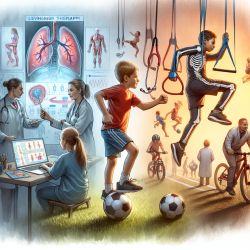As a practitioner in the field of mental health, staying informed about the latest research and methodologies is crucial for providing the best care and support to your clients. One area that has garnered significant attention recently is eMental Health Literacy (eMHL). A recent study titled College Students’ eMental Health Literacy and Risk of Diagnosis with Mental Health Disorders provides valuable insights that can enhance your practice.
Understanding eMental Health Literacy
eMental Health Literacy refers to the ability to obtain, process, and understand online mental health information and services. This literacy is essential for recognizing, managing, or preventing mental health issues. The study found that college students with higher eMHL are more likely to recognize symptoms, recommend professional help, and be at a lower risk for common mental health disorders compared to those with lower eMHL.
Key Findings and Implications
The study revealed several key findings:
- Higher eMHL scores were associated with a history of prior mental health problems, being female, and being a graduate student.
- Students with high eMHL were more adept at identifying mental health symptoms and seeking professional help.
- There is a significant association between eMHL and the likelihood of being diagnosed with a mental health disorder.
These findings highlight the importance of targeted interventions to enhance eMHL among college students. As a practitioner, you can leverage these insights to develop programs that improve digital mental health literacy, thus supporting mental health resilience and preventing mental health disorders.
Practical Applications for Practitioners
Here are some ways you can implement the outcomes of this research in your practice:
- Educational Workshops: Conduct workshops that focus on improving eMHL among students. Teach them how to find reliable online resources and understand mental health information.
- Resource Development: Create and distribute materials that guide students on where to find credible mental health information online.
- Collaboration with Educational Institutions: Partner with schools and universities to integrate eMHL into their curriculum, ensuring that students are equipped with the necessary skills to manage their mental health effectively.
Encouraging Further Research
While this study provides a solid foundation, further research is needed to explore the nuances of eMHL and its impact on different demographics. Encouraging students and colleagues to engage in research can lead to more comprehensive strategies for improving mental health literacy.
To read the original research paper, please follow this link: College Students’ eMental Health Literacy and Risk of Diagnosis with Mental Health Disorders.










